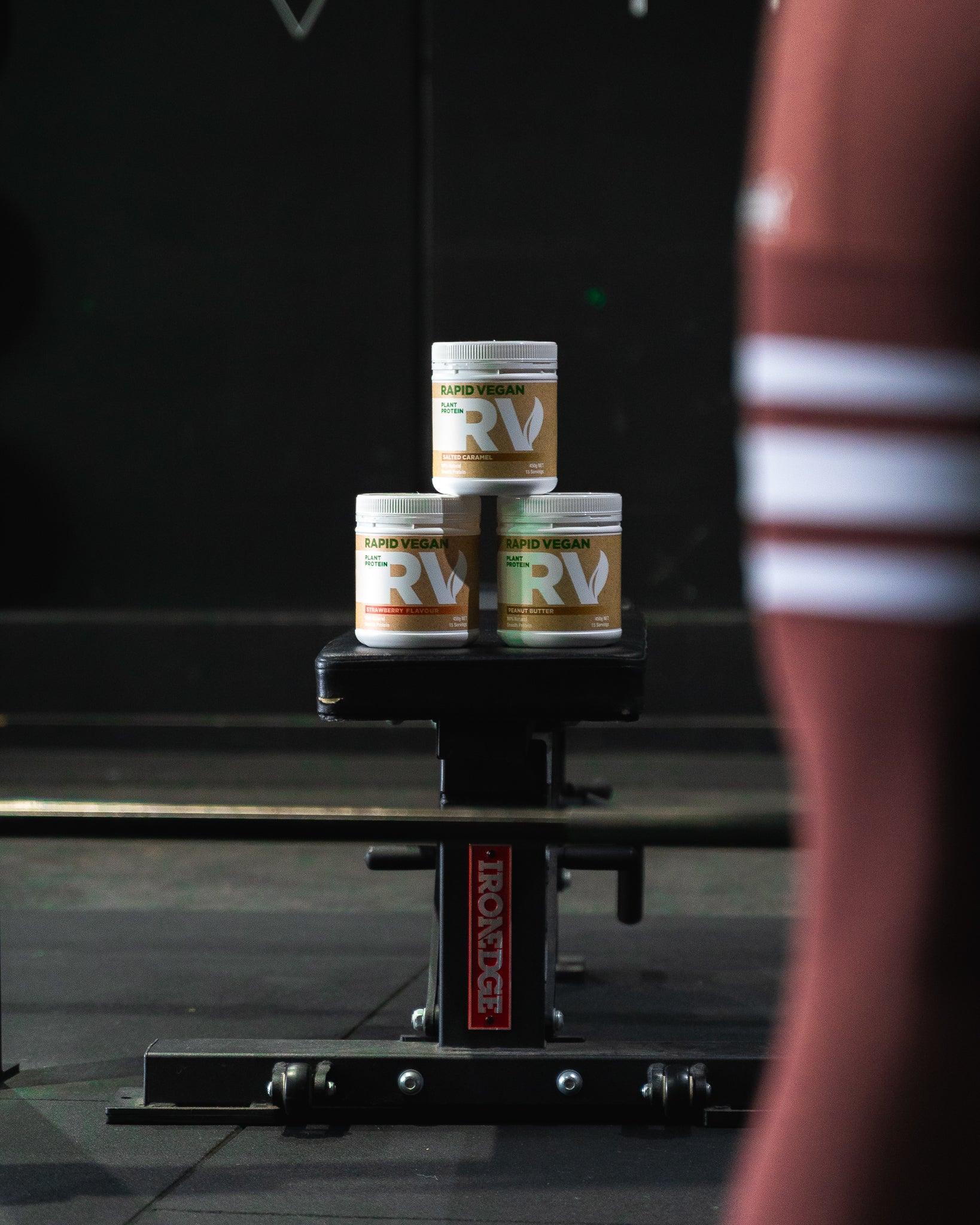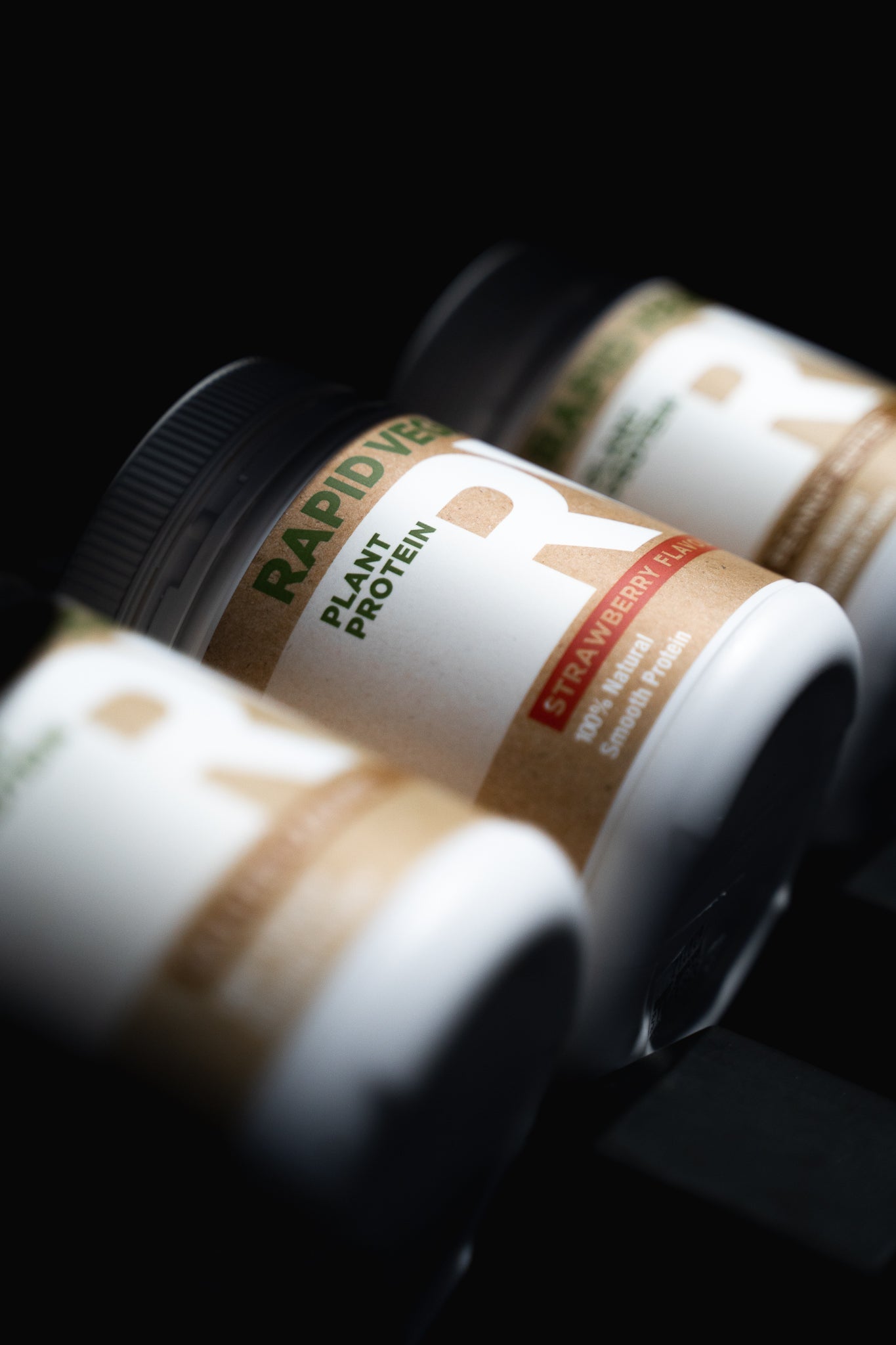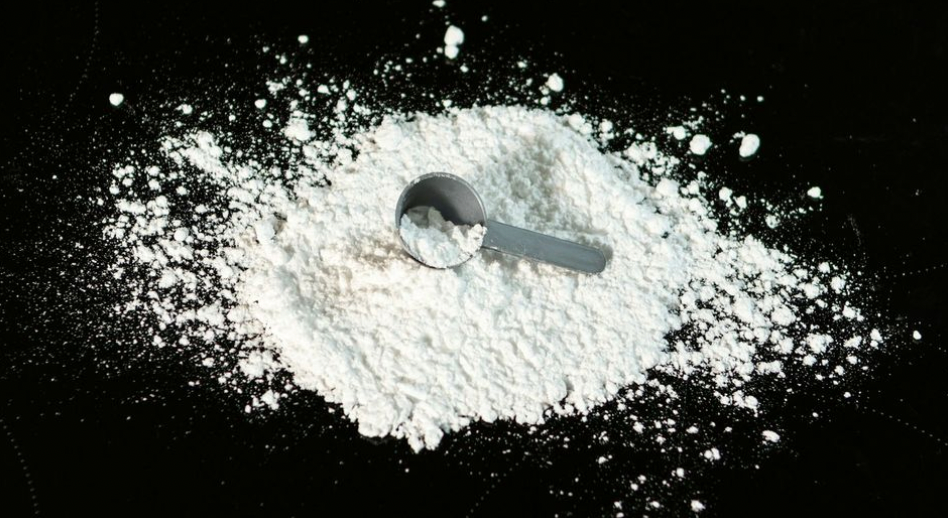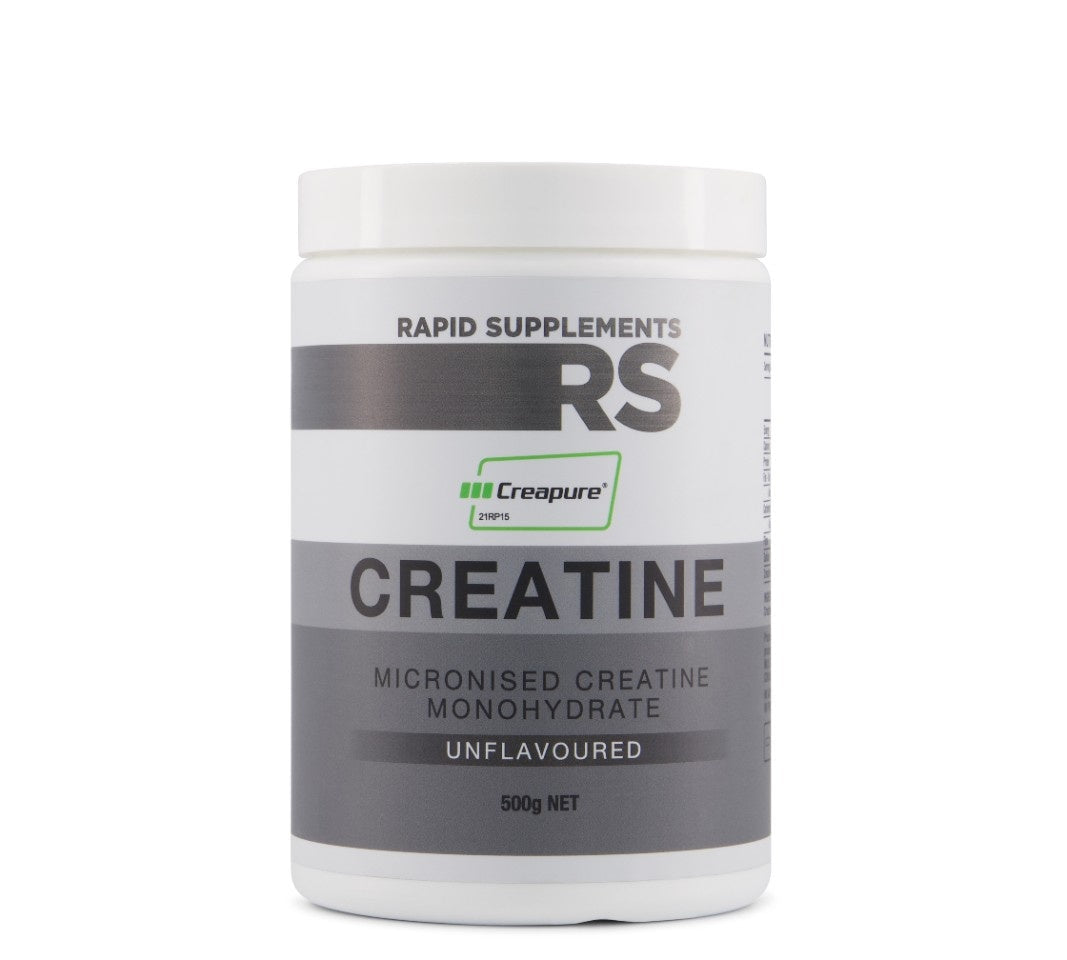Creatine isn’t just for gym junkies or bodybuilders. This well-known fitness supplement is now making waves in the wellness community for its potential brain-boosting benefits. In recent years, creatine for brain health has become a hot topic, with researchers exploring how it might improve mental clarity, focus, and even protect our neurons. If you've ever struggled with brain fog or want to optimise your cognitive function, creatine could be a surprising ally. In this article, we’ll break down the science in everyday terms – exploring how creatine works in the brain, what studies show about focus and memory, and whether daily use is appropriate. (Spoiler: many experts say yes!) We'll also touch on neuroprotection, and why a high-quality creatine (like Creapure®) might be worth considering for your daily routine.
What Is Creatine and Why Does the Brain Need It?
Most people know creatine as a powder to mix into a protein shake for muscle gains. But what exactly is it? Creatine is a naturally occurring compound made from amino acids, produced in our liver and kidneys, and found in foods like red meat and fish. It acts as a quick energy reservoir for cells. About 95% of the body’s creatine is stored in skeletal muscle – but importantly, a portion is also stored in the brain. The brain may be small, but it’s a high-energy organ (using up to 20% of our body’s energy). This is where creatine comes in handy: it helps rapidly regenerate ATP, the energy currency of cells.
How creatine works: In cells, creatine binds a phosphate group to become phosphocreatine. When your brain’s neurons suddenly need a burst of energy (say, during an intense bout of problem-solving or when you’re low on sleep), phosphocreatine can quickly donate that phosphate to ADP to form ATP. The best part – this reaction doesn’t require oxygen. So if your brain needs energy quickly, it can tap into creatine’s phosphagen system for immediate fuel. Think of creatine as a backup battery for your brain cells: ensuring they have an on-demand power boost for firing neurons and maintaining mental sharpness.
Why the brain benefits: The fact that the brain has its own creatine stores and even a special brain creatine kinase enzyme (CK-BB) suggests creatine is vital for brain function. In rare creatine-deficiency syndromes (genetic conditions where the brain can’t get or make creatine properly), individuals suffer serious cognitive impairments – including developmental delays and seizures – which can be partly reversed by creatine supplementation. This tells us creatine is not just “nice to have” but rather essential for normal brain development and function. Even in healthy people, when the brain’s energy demand soars (during complex tasks, hypoxia, sleep deprivation, etc.), creatine helps keep the lights on by buffering ATP levels. In simpler terms, creatine makes sure your brain’s power supply meets the demand, which can translate to better cognitive performance under pressure.
Creatine for Cognitive Function: Memory, Focus, and Brain Fog
Can creatine actually make you smarter or more focused? While it’s not a magic “Limitless” pill, a growing body of research shows it can support various aspects of cognition. Creatine’s benefits for focus, memory, and mental clarity have been documented especially in situations where the brain might otherwise struggle.
-
Memory and intelligence: A 2024 systematic review and meta-analysis of studies found that creatine monohydrate supplementation had significant positive effects on memory and also improved measures of intelligence/reasoning in adults. The improvements weren’t enormous, but they were meaningful – particularly in short-term memory and information processing speed. In practical terms, supplementing creatine might help you recall information a bit better or think on your feet faster, which is a clear benefit for focus and daily mental tasks.
-
Attention and mental fatigue: The same review noted improvements in attention (the ability to sustain focus) with creatine. Creatine seems to shine most when your brain is fatigued or running low on resources. If you’ve ever had that midday slump or struggled through a mentally draining project, that foggy feeling (often dubbed "brain fog") might be eased by creatine’s extra energy support. In fact, research shows creatine helps maintain cognitive performance during acute stressors – for instance, intense mental activity or lack of sleep – by sustaining ATP levels in brain cells. Many users anecdotally report a boost in mental clarity after adding creatine to their routine, describing it as a subtle but noticeable reduction in brain fog. While individual experiences vary, the science offers a plausible explanation: a well-fuelled brain simply functions better.
-
Who benefits most? It turns out creatine’s cognitive benefits are most pronounced in certain groups. If you follow a plant-based or vegetarian diet (and thus get little creatine from food), are an older adult, or often run yourself ragged (think sleep-deprived new parents or stressed-out students), you might notice the biggest gains. One expert noted that creatine shows promise in improving cognition among older adults, especially those with lower intake of animal-derived foods (which are natural creatine sources). There’s also evidence of benefit in cases of mild brain trauma and (you guessed it) sleep deprivation. In line with this, a 2024 review concluded that for people with creatine deficiencies or higher needs – such as vegetarians, the elderly, the sleep-deprived, or the mentally fatigued – creatine supplementation results in clearer improvements, whereas in young, healthy individuals the effects are more mixed. In other words, if your baseline brain energy is suboptimal, creatine gives you a bigger boost; if you’re already firing on all cylinders, the difference might be subtle (but not non-existent).
-
Mood and mental health: Beyond focus and memory, emerging research suggests creatine may influence mood and psychological function. Some studies (and high-profile neuroscientists) have pointed out creatine’s role in reducing inflammation and oxidative stress in the brain, which are factors in conditions like depression and anxiety. There are intriguing findings that creatine may lower the risk of depression or help as an add-on treatment (some psychiatrists use it in depression trials), and it’s even being explored for anxiety and PTSD. While the details are beyond our scope here, it’s encouraging to know that a simple nutrition supplement might support mental well-being along with cognitive sharpness. At the very least, more energy for your brain cells could mean a better mood and less mental exhaustion by day’s end.
Neuroprotection: Can Creatine Shield Your Brain?
One of the exciting areas of creatine research is neuroprotection – protecting brain cells from damage or degeneration. Lab studies have shown that creatine can safeguard neurons under various stresses. For example, creatine appears to buffer against oxidative stress and energy failure that can kill brain cells. It acts as an antioxidant of sorts, directly and indirectly reducing reactive oxygen species in cells. This has raised hopes that creatine could be beneficial in neurodegenerative diseases like Parkinson’s or Alzheimer’s, which involve energy deficits and oxidative damage in the brain.
Some key points on creatine’s neuroprotective potential:
-
Injury and trauma: If you hit your head or suffer a concussion, the brain enters a high-demand state to repair and reorganise. Creatine has been studied in models of traumatic brain injury (TBI) and concussion recovery. It may help by giving injured neurons more fuel to survive and heal. In fact, experts note creatine could be “neuroprotective against brain injury”. There are small studies in children with TBI suggesting better outcomes (like reduced dizziness and fatigue) when they were given creatine. While we need larger trials, this points to a simple way to possibly bolster the brain’s resilience after injury.
-
Neurodegenerative diseases: Creatine was once tested in a large trial for Parkinson’s disease (unfortunately without much success in slowing the disease). However, earlier-phase research and animal studies have shown some promise – for example, creatine supplements lowered brain glutamate levels in Huntington’s disease patients (potentially beneficial, as glutamate can be toxic in excess). It’s also been connected to mechanisms in Alzheimer’s. Although no one is saying creatine is a cure or prevention for these diseases, its role in cellular energy and stabilising mitochondria makes it an attractive area of study. At the very least, creatine might help support brain health and development over the long term, and it’s being looked at as an add-on to therapies for neurodegeneration.
-
Stress and cell survival: When brain cells are under acute stress (imagine an ischemic stroke or severe hypoxia), creatine can prolong cell survival by maintaining ATP. It has even been tested as a protective agent in certain neurotoxic exposures. All this underscores the idea of "creatine neuroprotection" – meaning creatine creates a safety net for neurons when things go wrong.
Keep expectations realistic: It’s important to note that while these findings are promising, creatine isn’t a pharmaceutical drug for brain diseases. More research is needed to fully confirm benefits in clinical settings. However, as an everyday supplement, taking creatine for general brain health is relatively low-risk and might confer some protective benefits over time. Think of it as insurance for your brain’s energy metabolism. Even if you’re not at risk of a neurological disorder, the idea of keeping your brain cells “charged” and possibly more resilient is pretty appealing.
Sleep Deprivation and Mental Stress: Creatine to the Rescue?
One scenario where creatine’s cognitive boost really stands out is sleep deprivation. If you’ve pulled an all-nighter or had a bad night’s sleep, you know how terrible the next day’s brain fog can be. Interestingly, creatine might help mitigate the cognitive decline from lack of sleep. A new 2024 study found that just a single large dose of creatine significantly increased cognitive ability in sleep-deprived participants. In that study, participants who hadn’t slept all night were able to perform better on tests of thinking and reaction time after taking creatine, compared to when they didn’t. In fact, the effect lasted for about 8–9 hours, with peak mental performance about 4 hours post-dose. Essentially, creatine gave them a mental second wind, delaying the typical slowdown we’d expect from no sleep.
This finding revises the old assumption that you need to load creatine for days to see any effect. Under extreme conditions like acute sleep loss, even one high dose (e.g. 20g) had an immediate benefit on brain performance. Experts hope that in the future, creatine-based strategies could help people who must perform with little sleep – think doctors on call, first responders, shift workers, or new parents. It’s not a substitute for sleep by any means, but it might take the edge off the worst cognitive effects when used appropriately.
Creatine may also help when you’re mentally stressed or fatigued even if you did sleep. There’s evidence that after intense mental tasks (or even combined mental and physical exercise), creatine users report feeling less mentally drained. One trial showed improved mood and less mental fatigue in sleep-deprived subjects who took creatine. By supporting the prefrontal cortex (the brain’s executive center), creatine helped with tasks that require complex thinking under stress. So whether you’re crunching numbers late at night or enduring a high-pressure workday, creatine could bolster your mental stamina.
Practical tip: If you know you’re heading into a period of poor sleep or heavy mental demand, ensuring your creatine levels are topped up might be wise. Some studies used an “acute” high dose, but for most people, sticking to a regular daily dose (3-5 grams) will ensure your brain has what it needs when the challenge comes. Unlike caffeine or other stimulants, creatine won’t jolt you awake; instead, it subtly helps your brain maintain clarity and processing speed despite fatigue. Many users pair it with their morning coffee or post-workout shake and find that over weeks, they feel a steadier energy mentally.
Daily Use of Creatine: Is It Safe and Worthwhile?
By now you might be thinking, “This sounds great, but should I really take creatine every day if I’m not a weightlifter?” The short answer for most healthy people is yes, daily use is appropriate and safe – and it might benefit your brain as much as your muscles. Creatine is one of the most-researched supplements in the world, and the consensus is that pure creatine monohydrate is safe when taken at recommended dosages. The only consistently noted side effect is a bit of water retention (leading to typically 0.5–1 kg weight increase, a sign your muscles are holding extra water – not fat gain). There’s no evidence that creatine harms the kidneys or liver in healthy individuals at standard doses. In fact, because it’s a substance your body already makes and uses, supplementing is simply boosting the available supply.
Recommended dosage: For general health including cognitive support, a common regimen is 3–5 grams of creatine monohydrate per day. This is often the amount found in one teaspoon of creatine powder. You don’t need a “loading phase” (that’s sometimes used in bodybuilding to saturate muscles faster, e.g. 20 g/day for a week, but for brain benefits it’s not clearly necessary). Taking it every day consistently will raise both muscle and brain creatine stores over a few weeks. You can mix creatine into water, juice, or your protein shake – it’s essentially tasteless and dissolves well in a hot or room-temperature liquid. Timing isn’t critical for cognitive purposes; morning, afternoon, or night – just take it when it best fits your routine. Many take it in the morning to pair with other supplements or because some early research hinted it might even aid sleep quality when taken later (though evidence is mixed).
Quality matters: Not all creatine supplements are created equal. Purity is crucial, because low-grade creatine might contain impurities (or not provide the full dose). One way to ensure you’re getting a top-notch product is to look for Creapure® creatine monohydrate on the label. Creapure is a branded form of creatine manufactured in Germany that stands for high-quality, pure and safe creatine. Many of the scientific studies have specifically used Creapure or other pharmaceutical-grade creatine, so using the same quality gives you the best chance to replicate those benefits. Also, check that the product is third-party tested (certified by groups like Informed Choice or NSF) – especially if you’re an athlete concerned about banned substances. A clean creatine supplement should only contain creatine monohydrate, with no added fillers or stimulants.
Daily or not daily? – Another common question is whether you need to “cycle” creatine (take breaks). For health and cognitive purposes, cycling isn’t required. Daily intake is fine and some experts even argue creatine is akin to a daily nutrient, like a training wheels for your brain’s energy metabolism. For instance, Dr. Eric Rawson, a creatine researcher, suggests that creatine could be considered part of an overall health plan, much like regular exercise or a good diet. There’s no evidence that your body stops producing creatine or that receptors “down-regulate” from constant use – it’s not a drug altering feedback loops, it’s a nutrient. So you can take it long-term without worrying about dependency or diminishing returns.
Any need for higher doses? Some research is investigating whether higher doses (10g or even 15g daily) might be needed to maximise brain uptake of creatine. The brain is a bit of a creatine fortress – it doesn’t absorb supplemental creatine as readily as muscles do, due to the blood-brain barrier. Thus, a few studies tried larger doses to see if more gets into the brain. They did find slightly higher brain creatine levels with bigger doses, but we don’t yet have clear proof that translates to significantly better cognitive performance for most people. Until more is known, sticking to the tried-and-true 5g per day is a good balance of safety and potential benefit. If you’re an athlete or someone under high cognitive demand, you could consult a health professional about trying 10g for a period to see if you notice a difference – but for most, 5g daily is effective and convenient.
Key Takeaways: Creatine and Your Brain
-
More than muscle – Creatine isn’t just a muscle supplement; it’s also fuel for your brain. By boosting the brain’s energy availability, creatine can enhance cognitive functions like memory, focus, and processing speed.
-
Mental clarity and focus – Many users and studies report that creatine helps reduce "brain fog" and improves mental clarity during challenging tasks or low-energy days. It’s particularly beneficial if you’re sleep-deprived or under stress, helping you stay sharper than you otherwise would.
-
Neuroprotective benefits – Creatine’s role as a cell defender means it may protect your neurons. It has shown potential to reduce oxidative stress and damage in the brain, which could translate to resilience against injuries or even mood improvements (e.g. lower risk of depression). This neuroprotective angle is still being researched, but it’s a promising bonus.
-
Safe for daily use – Taking creatine daily (3-5g) is safe for healthy individuals. It’s one of the most studied supplements, and aside from mild water-weight gain, it has no significant side effects at recommended doses. Daily use ensures your muscle and brain creatine stores remain topped up.
-
Quality counts – Use a reputable form of creatine monohydrate. Creapure® is an example of a high-purity creatine trusted in research. Avoid fancy-sounding variants; plain monohydrate has the most evidence behind it and usually the best value. Mix it with plenty of water and stay hydrated.
In summary, creatine for brain health is an exciting meeting of sports nutrition and neuroscience. For everyday health-conscious people, adding creatine to your regimen could support better cognitive performance – especially on those days when you’re not at your peak. It’s not a miracle drug, but the science-backed benefits for mental clarity, focus, and neuroprotection make it well worth a look. Just as we take care of our bodies with exercise and good nutrition, nurturing your brain’s health with a simple supplement like creatine might give you that extra edge in memory, focus, and overall mental energy. Always remember to pair supplements with healthy habits (good sleep, balanced diet, mental breaks) for the best overall results. With creatine, you might just find both your workouts and your work reports get a little easier – strong body, sharp mind!
Summary: Creatine supports brain health by acting as a quick energy buffer for brain cells. Research shows it can improve memory, focus, and mental clarity, particularly in vegetarians, older adults, or sleep-deprived individuals who may have lower natural creatine levels. It may also offer neuroprotective effects, helping shield the brain from oxidative stress and injury. Daily creatine (3-5g of Creapure® or other high-quality monohydrate) is considered safe and effective for maintaining cognitive benefits. While it’s not a overnight cure for brain fog or a replacement for sleep, creatine can be a valuable addition to your wellness routine – keeping your mind as strong and energised as your muscles.





